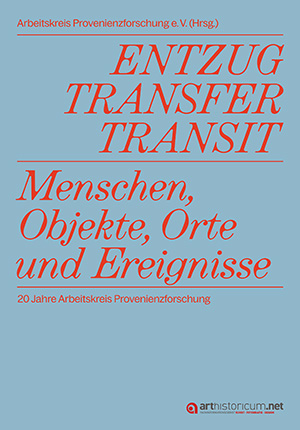How to Cite
License (Chapter)

This work is licensed under a Creative Commons Attribution 4.0 International License.
Identifiers (Book)
Published
Bücherverwaltung im Sozialismus. Zum Umgang mit zurückgelassenem Buchbesitz nach »Republikflucht«
Utilisation of books under Socialism. On the handling of abandoned books after »flight from the republic«
The Zentralstelle für wissenschaftliche Altbestände (ZwA, Central Office for Older Academic Stock) was the main institution in the German Democratic Republic (GDR) to deal with books and periodicals which were apparently or actually heirless, in duplicate, uncatalogued, or deaccessioned by libraries, and to utilize these. Its responsibility was mainly for academic libraries in universities, colleges, and polytechnics, but it also worked with municipal, ministerial, company, hospital, museum, and archival libraries. In the four decades of its existence, the ZwA – first based in Gotha, then from 1959 in Berlin – handled around eight million volumes. Only a tenth of these were donated to libraries. More than three million were taken over by the central antiquarian book dealership of the GDR which was founded in 1959. Almost three million further copies were pulped. The ZwA mostly worked with prints dating from before 1945. These also included Nazilooted objects.
The identification of such assets looted by the National Socialists was the focus of a longterm research project at the Staatsbibliothek zu Berlin – Preußischer Kulturbesitz. Funded by the German Lost Art Foundation, the role of the ZwA in redistributing goods looted by the National Socialists was investigated while also conducting basic research on the work of the ZwA. The results included first findings on the utilization of books which needed to be abandoned after »flight from the republic«. Such stock can only be successfully identified through crossreferencing archival documentation, information from accession books, and provenance markers. Only a small section of the library of Martin Helmer, who fled to WestBerlin in 1964, leaving behind 4,698 books that were mostly taken over by the Deutsche Staatsbibliothek in Berlin (East), could be identified to date.







